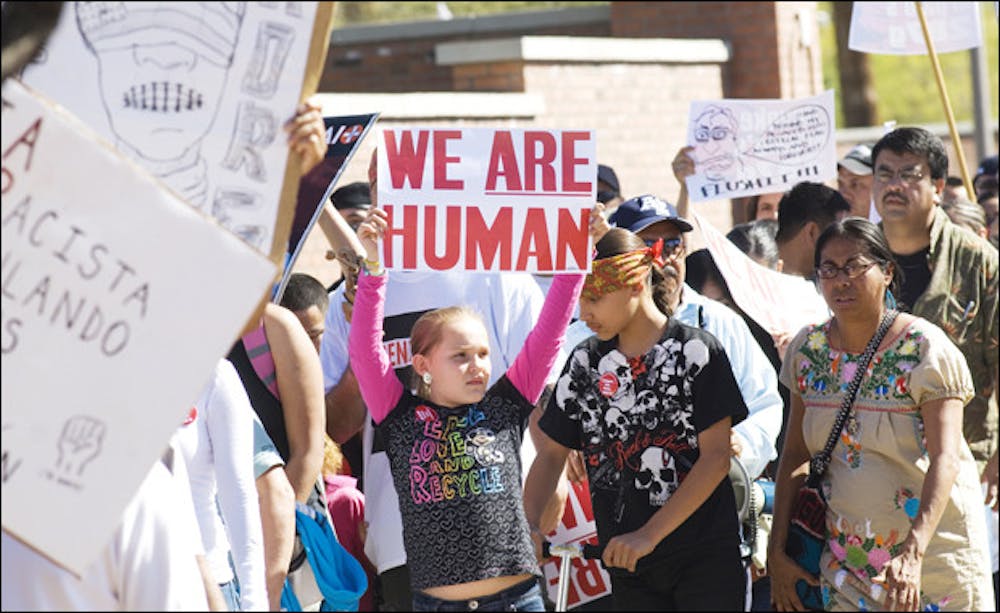ASU students used paint, masks and poster boards to relay the message that they want Arizona officials to investigate Sheriff Joe Arpaio.
Thousands of people came to observe or participate in the protest Saturday at Steele Indian School Park in Phoenix.
“A lot of people thought our imagery was powerful yet simple,” said Jenea Sanchez, an art graduate student. “It was a really great experience.”
Intermedia art senior Cory Weeks was one of 14 students marching nearly four miles, wearing a pink mask and a sign that said, “Torture is a Crime: Stop Arpaio.”
“I don’t agree with the way Arpaio is handling human-rights issues,” she said. “I think it’s important to bring to attention some of the activities that are happening in Arizona.”
Sanchez said it is her job as an artist to try a new approach at protesting this issue.
“In our times, we’re all about imagery and media,” she said. “Bringing that imagery into politics can speak to the people directly.”
Anthropology graduate student April Bojorquez said the layer that visual images in such protests create have a sense of wonder and questioning.
“To create something aesthetically provocative and captivating and maybe unfamiliar can really spike that internal dialogue in people,” she said.
The protest was initiated by Puente, a Valley organization dedicated to human-rights movements focusing on Latino rights and immigration.
“They’re the ones spreading the word nationally about the protests,” Sanchez said. “They research Maricopa, Arpaio and the laws he’s not abiding [by].”
Sheriff’s office representatives were unable to be reached for comment Sunday.
The purpose of the protest was threefold. Participants said they wanted the Maricopa County Sheriff’s Office to stop the raids, stop 287 (g) — a policy adopted in 1996 that gave law-enforcement officials the right to take on the role of a border patrol agent — and investigate Arpaio.
Sanchez said a raid is when the sheriff’s office goes into primarily Hispanic communities in South Phoenix, Mesa or Guadalupe and racially profiles its members by asking “people of color” for their immigration papers.
“I agree that [illegal immigrants] shouldn’t come the way they do, but in a way it’s survival,” Sanchez said.
Borjoquez said government officials are giving the police two jobs by implementing 287 (g).
“How do you wear those two hats without giving favor to either side?” she said. “It creates a really complex situation.”
Sanchez said as long as Arpaio is treating people unjustly and inhumanely, protests like these will continue.
“I don’t think it’s my role to determine and come up with a solution [to illegal immigration], but it is my responsibility to ask questions when it’s not right,” she said.
Reach the reporter at jodi.cisman@asu.edu.




